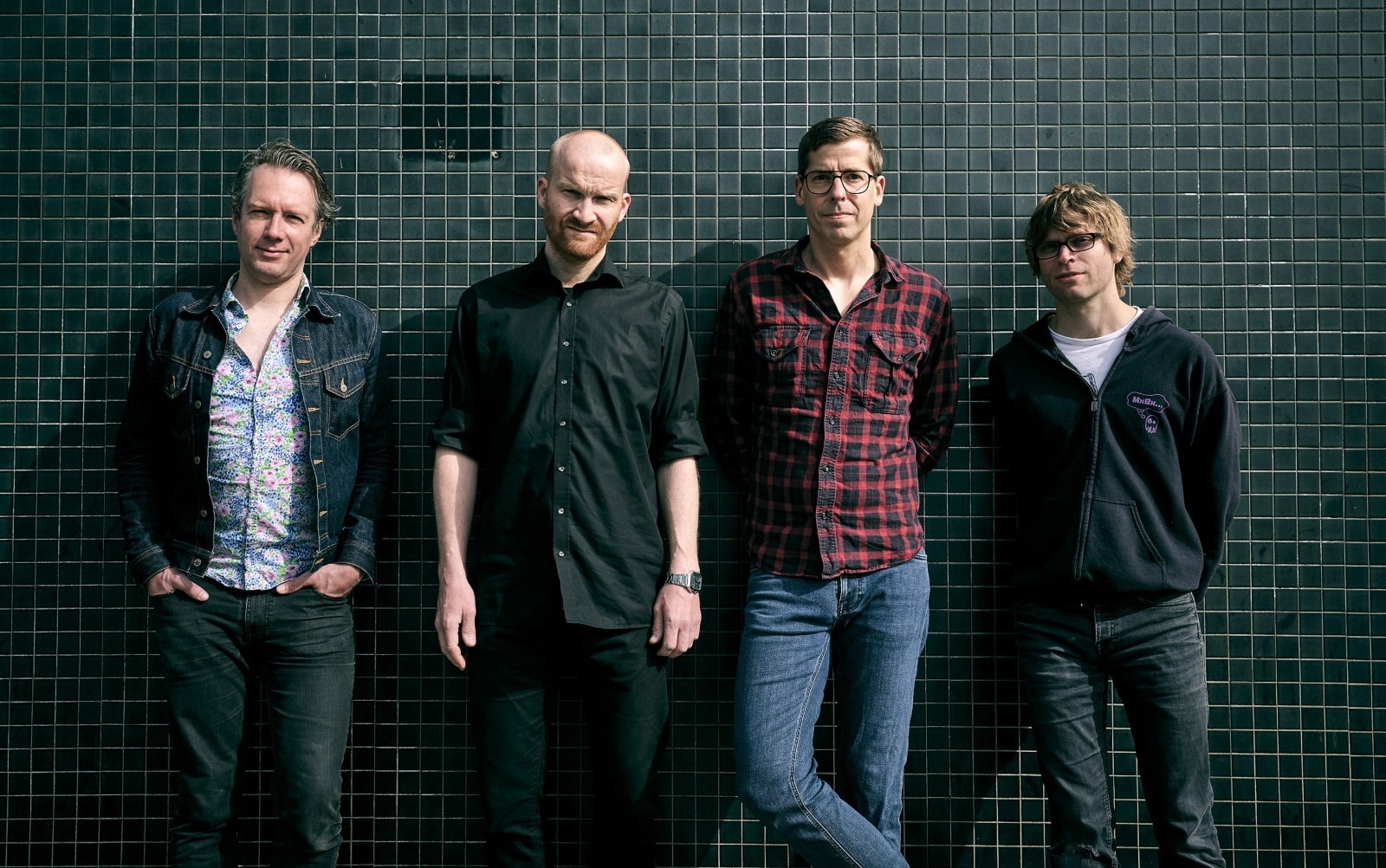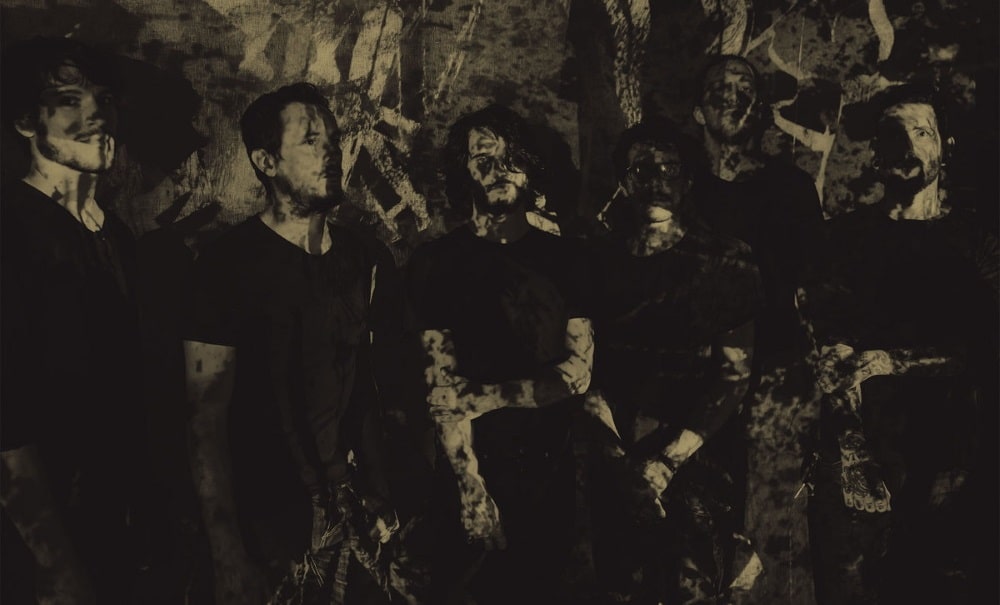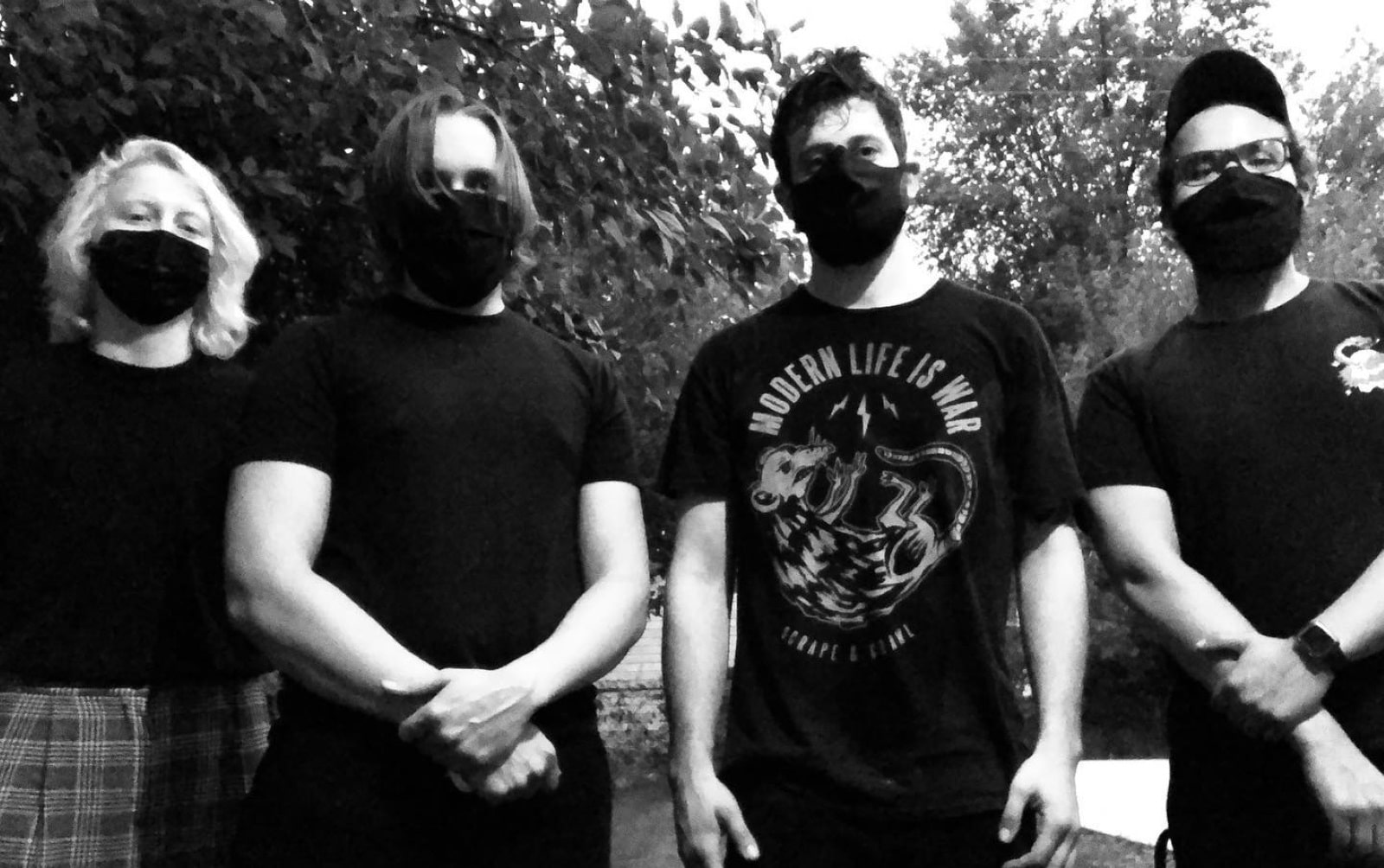ENTROPY are a 4 piece band from Hamburg, Germany, blending alt rock, emo, grunge and shoegaze into their crowning achievement and one of the most interesting offerings in this style this year. Taking influences from both classics of the 90s and modern inspirations, and adding their own twist, the band creates an instant familiarity to their sound, a warmth and a comfort that emerges from crossing their uplifting, yer vigorous sonic paths. It’s great to hear the good old emotive rock still finding its feet and delivering such a breathtaking experience. To celebrate this earworm record “Liminal“, we have teamed up with the band to give you an insightful, first-hand track by track commentary, along with the full stream of the album below!
Entropy initially started out as a bedroom project, but soon developed into a full-fledged band devoted to fusing heavier post-hardcore sounds and indie and shoegaze elements.
𝑇ℎ𝑖𝑛𝑘 𝐻𝑢𝑠𝑘𝑒𝑟 𝐷𝑢 𝑚𝑒𝑒𝑡𝑠 𝐻𝑒𝑙𝑚𝑒𝑡 𝑚𝑒𝑒𝑡𝑠 𝑁𝑜𝑡ℎ𝑖𝑛𝑔 𝑚𝑒𝑒𝑡𝑠 𝑇𝑜𝑟𝑐ℎ𝑒.
There’s a distinct 90s vibe here, sure, but Entropy doesn’t just want to conjure up the past – their energy and drive propels them into the present and keeps their feet firmly planted in the here and now. The band features former and current members of The Now-Denial, Night Slug, Hillside and EA80.
“This is nothing less than the best German emo/indie record of the last ten years, and I’m tempted to up that to fifteen years, because I cannot recall anything of recent vintage that comes even close.” – Herr Neumann (duesenjaeger)
Terminal (adj.)
This is not a song about airport terminals – hence the (adj.) in the title. We’re talking medical terms here. “Terminal”, used as an adjective, means “ending deadly”, and this is what the song revolves around. Since I suffer from Crohn’s disease, illness and its potentially life-threatening consequences have been constant companions of mine during the last few years. The breakdown part, for instance, imagines surgery that went wrong. I wrote this before I underwent exactly the same procedure conjured up in the song – maybe an attempt to appease the demons? Since I’m still here, it seems to have worked. The chorus, on the other hand, deals with sex as a potentially redemptive power amidst all the darkness in this world. So there’s light, too!
The Enemy Doesn’t Sleep
The initial idea came to me after reading the novels of a fairly obscure German writer named Wolfgang Welt, who chronicled his trials as a fledgling music journalist in the 80s and eventually suffered a schizophrenic break. I still remember: I was in San Diego, lying on the beach, beautiful people and surfers around me, reading Welt and sensing this feeling of dread completely out of sync with my surroundings. While I have no direct experience with schizophrenia, I know anxiety inside and out, and I was struck by how similar both conditions seem to be in some respects – at least that’s what I gathered from the novels. Mainly this constant feeling of threat that almost becomes second nature… The lyrics are an attempt to combine both Welt’s and my experiences with mental illness, and there’s also an epiphany near the end where the narrator realizes that he could write a book – in other words, there’s a dawning realization that art could be a form of overcoming.
Northern Line
This song is basically about the time I spent living in London, feeling pretty isolated and burned-out. My friends were far away, and my band had just broken up, and I felt as if I’d never write another song again. I recall sitting on the Northern Line, which I had to ride to get back to North London from the city centre, feeling out of place and exhausted. During the whole year I spent there, I only managed to write one riff. Over 10 years later, it became the chorus of “Northern Line”.
Continued below…
Age of Anxiety
As the title suggests, we’re talking Alan Watts here, a great hippie-ish buddhist philosopher who was active in the 1960s and 1970s. Even though some people might dismiss his stuff as esoteric hogwash, I think it’s very humane, light-hearted yet profound and, quite often, funny. The song sort of touches on some of his ideas expressed in “A Message for an Age of Anxiety”, but it’s also a fairly descriptive account of my travelling to San Francisco and trying to find the houseboat on which he lived (and eventually drank himself to death). Didn’t find it, but at least some words to put to paper resulted from it!
February 20, 1974
On this date, the sci-fi author Philip K. Dick experienced an epiphany (or a drug-induced hallucination, he himself wasn’t so sure about it). If you’re interested, here’s a much better depiction of the events than I’d ever be able to give, written and illustrated by none other than the great Robert Crumb.
The song is basically a plea to – well, to whom, actually? To myself, to a higher power, to the void? To V.A.LI.S.? Not so sure. In any case, the narrator is appealing to someone or something to stop unwanted intrusive thoughts.
Stuttering Days
In part, the song is a flashback to my teenage years when a friend and I hung out at his place and watched the French horror movie “Brotherhood of the Wolf”. It felt as if we were watching something very significant. Why? I can’t really tell. The title is a phrase stolen from Shane Black, the author of the screenplay to the original “Lethal Weapon”. He uses it to explain why his movies often take place around Chrismas – there’s an interruption of the everyday flow of days, of the standard rhythms of day-to-day life, which makes it possible to step outside of ingrained patterns to change things. That’s why I always loved the time between Christmas and new Year’s Eve. And fittingly, the song was written during this time, too.
General System Theory
Once again, the title says it all – this song is an attempt to describe a certain system, using some ideas from, well, Systems Theory. But I prefer not to say anything more, since this song is sort of mean-spirited, and I’d like to keep the targets of my scorn private in this case. I’m very happy with the music because it’s harmonically different from the other stuff I tend to write – quite dissonant, sparse and ugly, at least during the verses!
Knausgardian
I created this term to describe a general feeling towards life in contemporary western society that Karl Ove Knausgard captures very poignantly in his work. The first lines go: “And the numbers in decline/And the days are slowly dwindling/Maybe it’s my disease/Maybe it is everyone else/ I walk shorn of humanistic alibis”. So there’s this lingering feeling of disappointment, a feeling that “the center cannot hold”, to borrow from Yeats. So all bleakness, again? Well, as with most of the other songs, there’s a spark of light, in this case expressed by the great Emily Dickinson, whose poem 129 I recite when the clean guitars come in. It’s ambiguous, too, but to me, it’ ultimately a beautiful rendering of hope in the face of despair.
Balancing the Edges
This is our fast song. And it’s about growing old. For me, it’s the track that is most fun to play live. Back when there were concerts and stuff, you know. It also contains a Motörhead reference. Listen closely!
A Dying Animal
The only track on the album that isn’t in 4/4. I’ve heard people likening it to the Cocteau Twins, which is so cool. A heavily distorted version of the Cocteau Twins with deep vocals and actual lyrics, that is. So really nothing like the Cocteau Twins. Well, anyway, this song is quite literal – it’s about dying. The title is obviously inspired by Philip Roth, and I think that these are the best lyrics I’ve written to date. “For now, we’re kept in motion/Soon we’ll all cease to exist”. Says it all really. By the way, the fact that there’s a Charles Manson song with a similar title didn’t really register with me until recently. But it adds to an appropriately eerie coda to the album.











